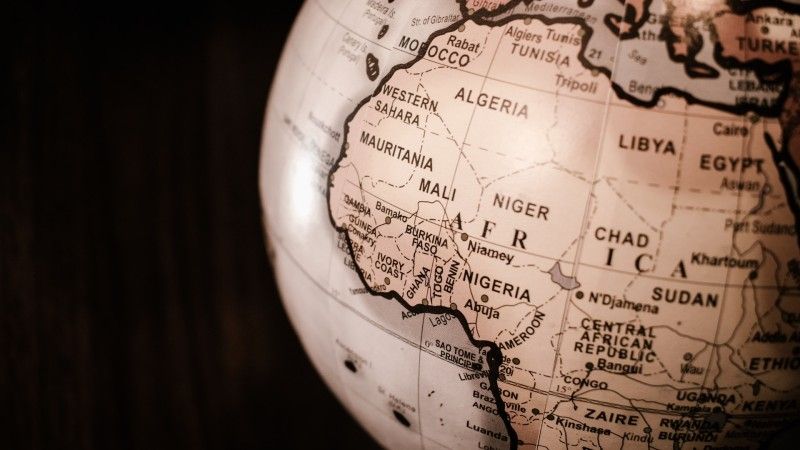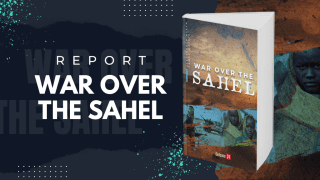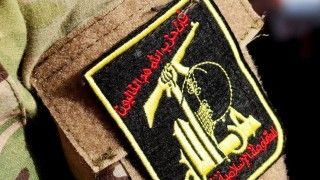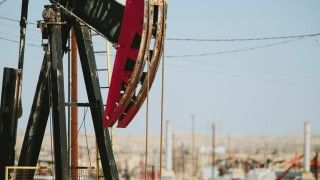- WIADOMOŚCI
- ANALIZA
Poland – Morocco: Untapped Potential for Cooperation
The outbreak of the largest European war since the conflict of 1939-1945 marked a wake-up call for many nations and their policymakers. Since 2022, Polish foreign policy and diplomacy have been primarily focused on Eastern Europe and issues directly or indirectly linked to the Russian-Ukrainian war. This focus was evident in the 2024 policy address by Polish Foreign Minister Radosław Sikorski, where other global regions (apart from the Indo-Pacific) were mentioned only briefly. However, in competing with Moscow, it is crucial to engage partners located thousands of kilometers away from Warsaw. Morocco, the most pro-Western country in North Africa, is one such partner.

A Brief History of Relations
The People’s Republic of Poland was notably active in North Africa during the 1950s when French-controlled territories began gaining sovereignty. Morocco declared independence in 1956, and Poland recognized this milestone shortly afterward. By 1958, a Polish Consulate General was established in Casablanca. Diplomatic relations between Warsaw and Rabat were formally established in 1959.
The following decades witnessed deepening economic ties, investment initiatives, and the deployment of Polish scientists and engineers to assist in Morocco’s infrastructural development. Relations were marked by bilateral visits at the highest levels, such as King Hassan II’s visit to Warsaw in 1966 and Polish Prime Minister Jerzy Buzek’s visit to Morocco in 2000.
Since the 1990s, foreign policy discussions have been a key focus of bilateral relations, evidenced by numerous meetings and calls between the foreign ministers of both nations. Additionally, high-profile symbolic visits—such as President Aleksander Kwaśniewski’s attendance at the 1999 funeral of King Hassan II—highlight the historical connection. Notably, Moroccan Prime Minister Abbas El Fassi attended the funeral of Lech and Maria Kaczyński in 2010. Despite the challenges posed by the pandemic, King Mohammed VI has expressed interest in making an official visit to Poland, underscoring the importance of these ties.
See also

Priorities in Polish and Moroccan Foreign Policy
Poland and Morocco’s foreign policies differ fundamentally due to their geographical, cultural, and resource-based realities. To identify areas of potential cooperation, it is essential to outline the international priorities of Warsaw and Rabat.
Poland’s 2024 foreign policy centers on countering Russian aggression and reducing threats along its borders. Supporting Ukraine remains pivotal, as it serves as a buffer against risks to the European Union and NATO. Poland also seeks to strengthen its security ties with the United States, expand its role within the EU post-Brexit, and emerge as a leader in Central and Eastern Europe. Additionally, Warsaw aims to bolster its global standing by engaging with countries in the Global South.
Morocco, on the other hand, has long prioritized the issue of Western Sahara. The conflict over this territory began with Spain’s withdrawal from its former colony in 1975. Morocco claims Western Sahara as an integral part of its territory, a stance opposed by Algeria, which supports the Polisario Front. In 2007, King Mohammed VI proposed an autonomy plan for Western Sahara, a framework endorsed by nations like the United States, Spain, and France. While Poland has been cautious in addressing this issue, 19 EU member states have expressed support for Morocco’s plan, which limits the scope of Warsaw-Rabat political cooperation.
In addition to its Western alliances, Morocco maintains strong sectoral cooperation with China while strengthening ties with the U.S., Israel, Spain, and France. Its rivalry with Algeria—rooted in differing geopolitical alliances—remains central to Morocco’s security agenda. Rabat’s strategic interests also include Sub-Saharan Africa, where migration and extremism pose significant challenges.
Building Bridges Despite Differences
Poland and Morocco should concentrate on fostering political cooperation. Current international developments present opportunities for alignment. Both nations have voiced criticism of Israeli actions in Gaza. While Morocco’s stance is influenced by its delicate balancing act between supporting the Palestinian cause and securing Israeli recognition of Moroccan sovereignty over Western Sahara, Poland and Morocco could jointly advocate for adherence to international law and condemn terrorism as a means of political action.
Although Morocco has been publicly neutral on the Ukraine war, it quietly supports Kyiv. This discretion stems from Morocco’s geopolitical considerations, including its rivalry with Russia-backed Algeria and the strategic importance of Moscow’s UN veto regarding Western Sahara. Morocco’s Ministry of Foreign Affairs has emphasized sovereignty, territorial integrity, and peaceful conflict resolution—principles that align with Poland’s advocacy for the international legal order.
Poland and Morocco also share strategic allies, particularly the United States. Morocco’s collaboration with the U.S. extends to modernizing its armed forces, while relations with Spain
and France are crucial for historical, economic, and migration-related reasons. Warsaw should leverage these shared interests to deepen bilateral ties without overly relying on the agendas of mutual allies.
Warsaw could propose innovative areas of collaboration, such as migration management, border security, combating Islamic radicalism, and job creation in Morocco. Poland’s expertise in handling migration crises since 2021 could be a valuable asset in supporting Morocco’s efforts to manage its Mediterranean migration route.
Economic Diplomacy as a Pillar of Cooperation
Economic ties between Poland and Morocco have grown significantly, with trade volumes increasing from $410 million in 2020 to $913 million in 2023. Poland maintains a trade surplus, highlighting the potential for expanding economic relations. Polish exports to Morocco include machinery, vehicles, electronics, and grain—a critical commodity amid the ongoing war in Ukraine.
To solidify economic ties, high-level visits by Polish leaders to Rabat would be a powerful signal. Poland should adopt an assertive but cooperative diplomatic approach, acknowledging Morocco’s autonomy plan for Western Sahara while respecting the rights of the Sahrawi people. This balanced stance could position Poland as a credible partner for Morocco, even as Rabat navigates its relationships with Algeria, Russia, and China.
A New Chapter in Bilateral Relations
Strengthening relations between Poland and Morocco requires a more dynamic approach from the Polish Embassy in Rabat. Poland’s limited visibility in Morocco suggests the need for a comprehensive strategy to promote mutual understanding and cooperation. High-profile symbolic acts, such as deploying Polish rescue teams following the 2023 earthquake in Al-Haouz province, have already laid the groundwork.
As Poland begins its EU presidency in 2025, Rabat presents an ideal gateway to the Maghreb and Sub-Saharan Africa. By capitalizing on shared interests and fostering collaboration, Poland and Morocco can unlock the untapped potential of their bilateral partnership.
Author: Konrad Markiewicz
Analytical Support: Dr. Aleksander Olech
















